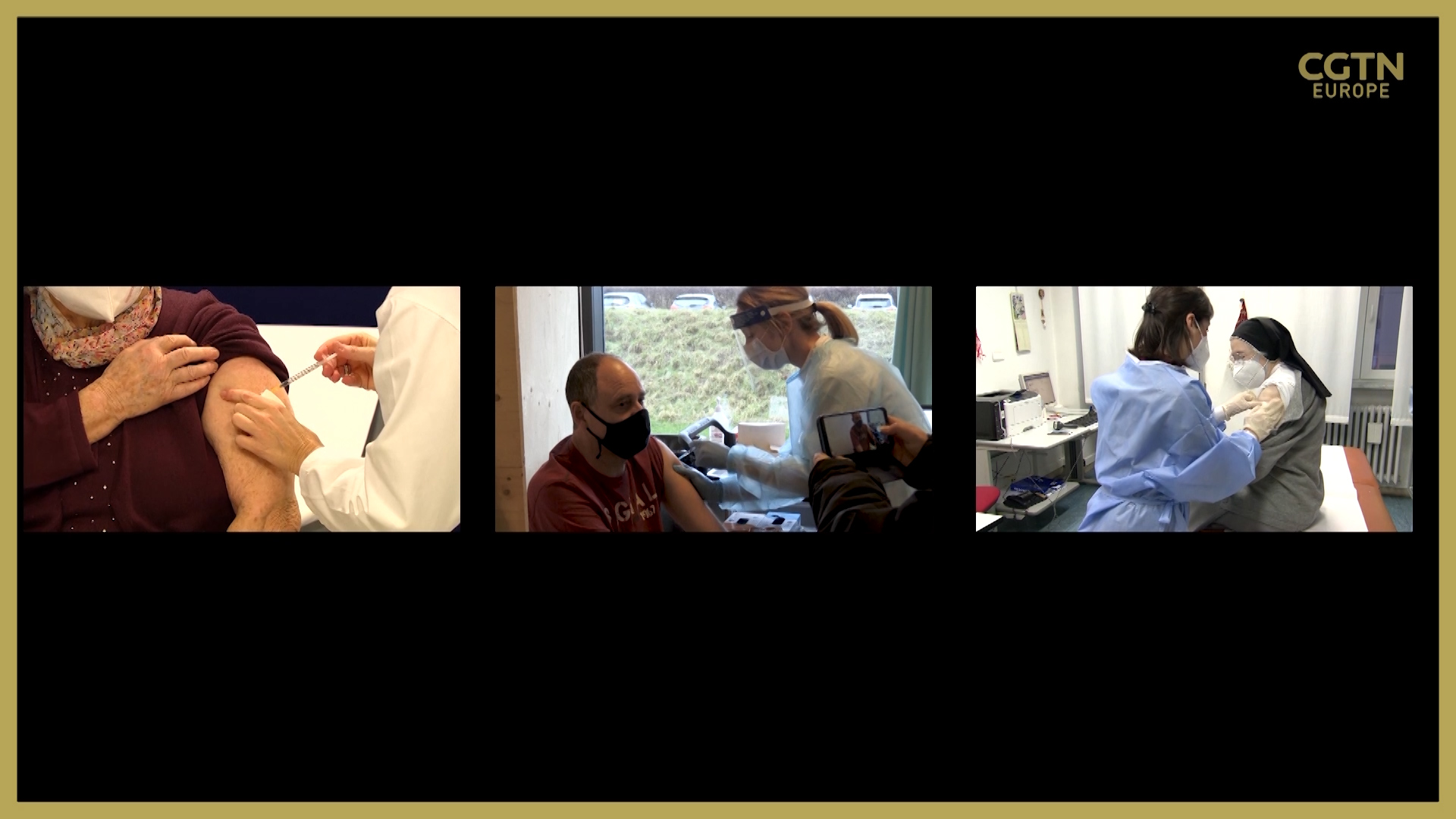02:02

A team of scientists in Germany believe they have figured out why the AstraZeneca and Johnson & Johnson coronavirus vaccines have resulted in rare blood clotting.
The breakthrough has yet to be peer reviewed, but it could yield some of the answers pharmaceutical giants are desperately looking for, as some countries pull away from viral vector vaccines and instead renew contracts with mRNA vaccine makers.
In basic terms, the AstraZeneca and Johnson & Johnson jabs use harmless cold viruses to deliver vaccine material into the nucleus of the body's cells. These are known as viral or adenovirus vectors. Normally, this material or "instructions" are delivered seamlessly and multiply over time to build up the body's defenses.
However, researchers say rare blood clotting is the result of the instructions being misread. After entering the nucleus, a "split" occurs, which makes it impossible to bind to the cell membrane. This mutant material can then enter the body and trigger a dangerous reaction such as blood clots.
Being able to pinpoint when the "split" occurs, could allow vaccine makers to improve the jabs in the future.
"If we know where the splice points are, we could use targeted mutagens to modify them so that they are not used. Then you would have the perfect vaccine," Rolf Marschalek, from the Institute for Pharmaceutical Biology, told CGTN Europe.
Pharmaceutical giant Johnson & Johnson has already been in touch with the Goethe University lab to learn more.
Use of Astrazeneca's COVID-19 jab was temporarily suspended within the European Union in March, while regulators investigated its link to thrombosis. A similar decision was later taken with Johnson & Johnson's vaccine by the Center for Disease Control (CDC) in the U.S..
The European Medicines Agency and CDC officials ultimately decided the benefits of the vaccines outweighed the uncommon risks.
Despite reassurances, Austria, Denmark and Norway have dropped the viral vector vaccines from their vaccination campaigns.
In other countries, millions of people have refused the shot and instead opted to wait until more doses of mRNA vaccines from Pfizer-BioNTech and Moderna become available.
The World Health Organization says both mRNA and viral vector vaccines are safe for use and people should not hesitate to get either when it is their turn to get vaccinated.
Photo credit: A medical worker holding a dose of the AstraZeneca vaccine in Munich. /Reuters/ Andreas Gebert

